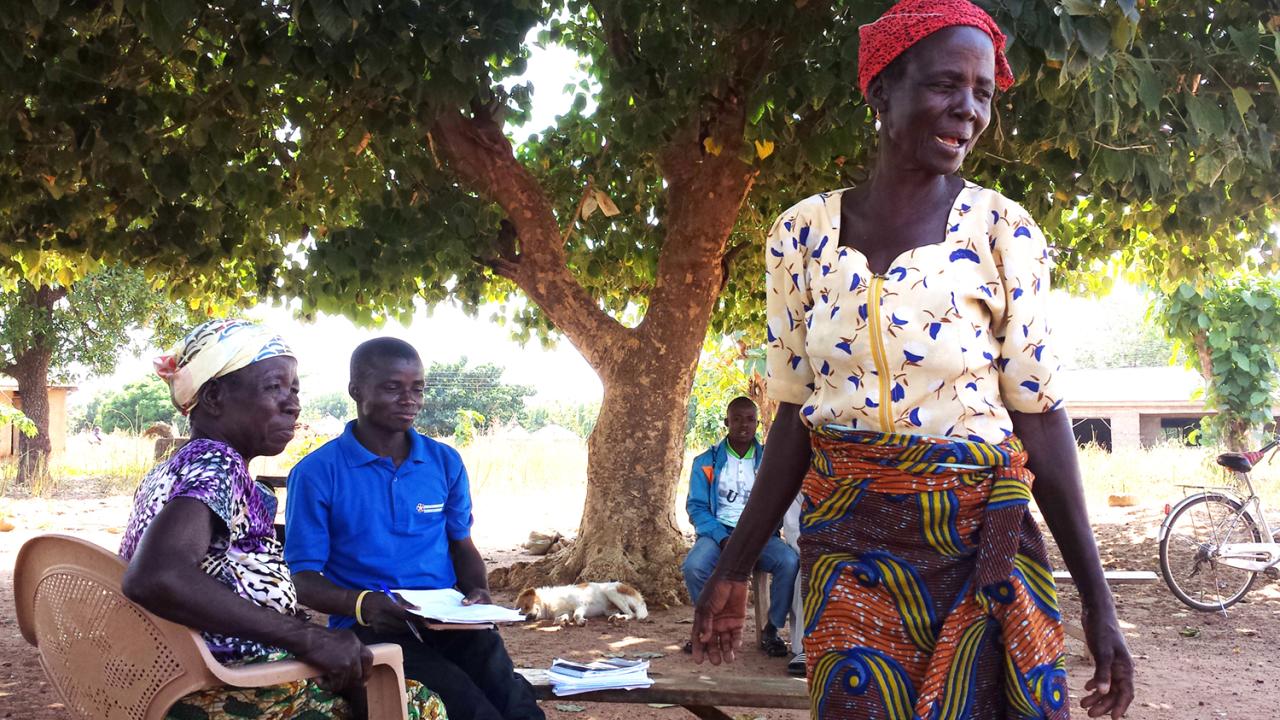
When Loans are Insured, Women Farmers Risk Investing in Productivity
By Khushbu Mishra
Women farmers across the developing world do not have ready access to agricultural resources. When they do have control over farmland, it is more difficult for them to secure loans for investments or to insure their crops against increasing shocks such as floods or drought.
Farmers, particularly women surviving at the edge of poverty, are scared to take on loans for agricultural inputs since default rates are high. But taking the leap and applying for bank credit to invest in drought tolerant seeds or fertilizers could provide the boost they need to grow more, stabilize income and get food on the family dinner table.
In Ghana I recently collaborated with researchers from The Ohio State University, with support from the Feed the Future Innovation Lab for Assets and Market Access, on a randomized controlled trial (RCT) on whether index-insured loans would increase uptake for agricultural credit and promote the adoption of improved technologies. We intentionally separated male and female farmers to better understand the differing constraints each group faces when making decisions about agricultural loans.
We were also particularly interested in whether providing insured loans would propel women to take more productive risks. Women farmers are typically more conservative borrowers because they are cautious of losing their already limited collateral or social status in case of default in the event of a bad weather shock.
On the other hand, banks are more cautious to lend to men because they perceive women as more trustworthy when it comes to repayment. Here develops a troublesome mismatch between the demand and supply sides of the credit market in the absence of insurance.
For this research project in Ghana, we made two types of insured loans available. For one arm of the intervention, farmers received a payout directly in the event of a drought. In the second arm of the intervention, local banks that provided the agricultural credit would receive the payout in exchange for forgiving the loan.
The results of the study showed that the two types of insured loans had different effects on men’s and women’s access to credit. When it came to insured loans that would pay out directly to farmers, loan applications from women increased by 14 percent with no significant increase among men. This suggests that the index-insurance product coupled with the loan made them more confident to apply for the credit needed to invest in their farms.
A properly designed index-insurance product that reduces the risk that farmers will default because of a weather shock encourages banks to increase loan approvals. The study showed that the index-insured loans boosted the likelihood of loan approvals by 22 and 25 percentage points for females and males, respectively.
Insured loans hold significant promise for expanding credit access and technology adoption among all smallholder farmers. These findings indicate that reducing systemic risk for both borrowers and lenders can serve as a springboard to expanding credit access, which can help to increase levels of technology adoption that is desperately needed across sub-Saharan African countries.
Khushbu Mishra is an assistant professor of economics at Stetson University. As a graduate student at The Ohio State University, she explored the gender-specific impacts of an AMA Innovation Lab-funded randomized control trial on index insurance and agricultural loans in Ghana. This post originally appeared on Agrilinks.org.
